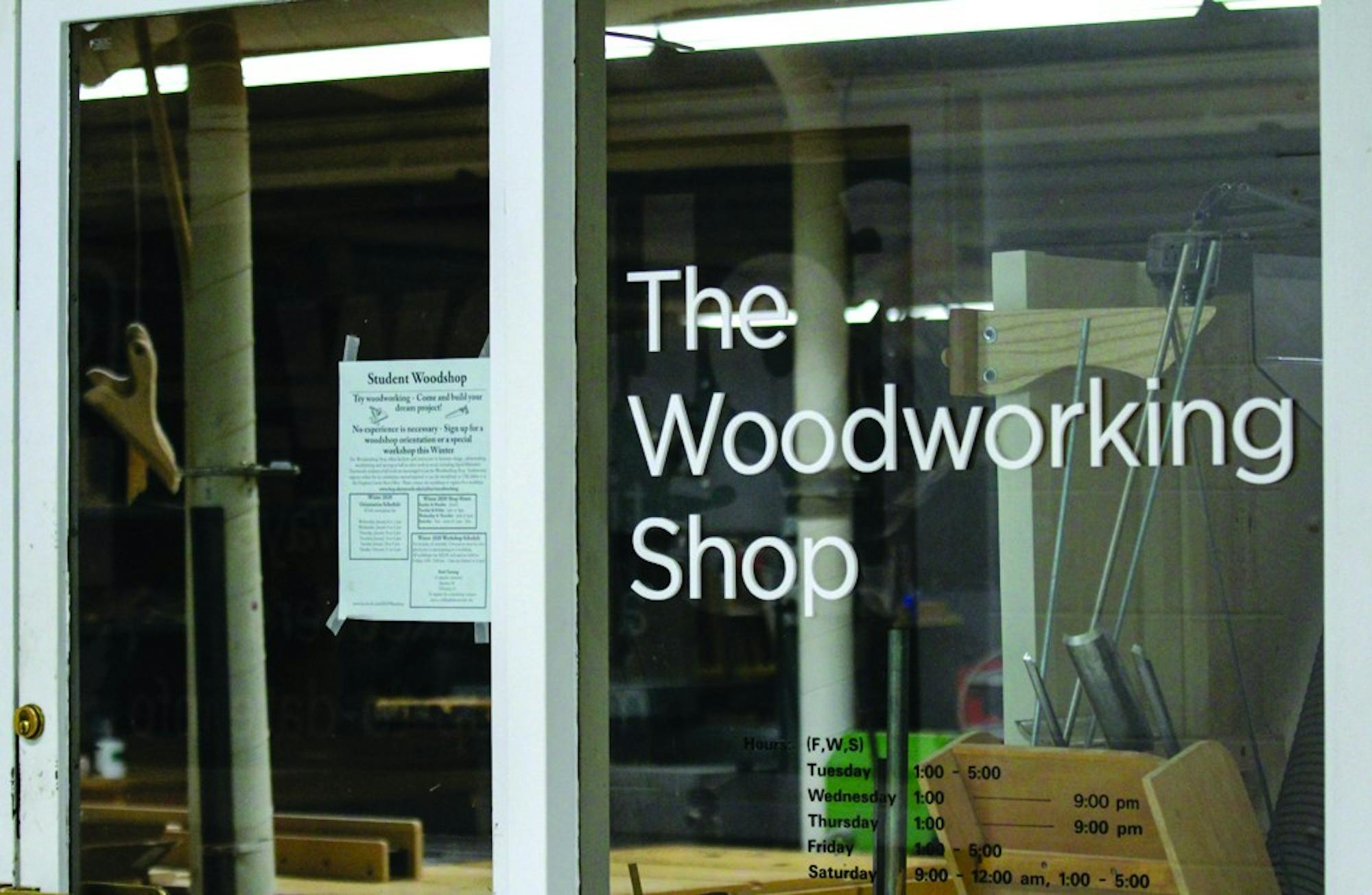More than 750 Dartmouth students, faculty and alumni signed a petition to keep the Woodworking Workshop open and accessible during the ongoing renovation of the Hopkins Center. The petition seeks to minimize the closure time of the Workshop, provide necessary power tools and find a larger space for the interim location, according to Thayer School of Engineering Ph.D candidate Mimi Lan, who co-wrote the petition and coordinated outreach efforts.
The petition was originally started in the fall by Lan and Chris Magoon ’13, Th’14, who now runs the Engineering and Computer Science Center Makerspace. Lan said that their main motivation for creating the petition was the concern that students would be left without a woodshop for an indefinite period.
Magoon and Lan said that they designed the petition so that signees could have two ways of expressing support for the woodshop: one option to simply sign the petition to raise awareness of the inadequacies of the proposed woodshop, and another to write a personalized letter or email to the Hopkins Center trustees to share past experiences in a fully-functional woodshop.
The College’s original plan would have relocated the Woodworking shop to a 960-square-foot modular trailer during the two-year renovation, and reduced the number of power tools available to users. The petition calls on the College to rethink the current plan, calling its previous 6,000-square-foot space a “creative sanctuary on campus.”
Throughout negotiations with the Hopkins Center administration, petitioners managed to secure access to more power tools and minimize the amount of time students would have to go without a shop, according to Lan. She added that the campaign had to concede to space limitations for the interim shop in order to reduce the time without access to any shop.
“In the end [the Hopkins Center] said that if we want the Woodshop to open soon… we have to go with this modular unit,” Lan said, adding that the amount of time it would take to retrofit a larger space could take years. “I think one compromise is that, you know, we don’t want students to miss the wood shop,” she said.
Hopkins Center director of external affairs Michael Bodel wrote in an email statement that the Center will be able to meet the petitioners’ requests for special equipment, including multiple saws, a dust collector, a planer and a blower.
“We are fortunate that many of our technical requests around power and dust-collection were able to be met and approved, which will allow students to use a full complement of power tools as we had hoped,” Bodel wrote.
Bodel added that the modular trailer unit will be situated in the Maffei Arts Plaza, between the Hopkins Center and the Black Family Visual Arts Center, and said that the “reduction in the number of students served” would be in keeping with the reduction in the size of the facility.
According to Bodel, the woodworking instructors and staff will be setting up in the interim facility in late February, with the goal of reopening by the spring.
Lan said that the petition’s testimonies laid out many reasons for supporting the Woodworking shop. Sixty-six direct letters asked the Hopkins Center trustees to preserve the Woodworking shop and described the workshop as a space that fostered their “mental wellbeing, education and sense of community,” Lan said.
Engineering professor Harold Frost, who wrote a letter to the Hopkins Center’s board of trustees, said that the Woodworking shop is a unique space for hands-on learning.
“What sets Dartmouth apart is well typified by the fact Dartmouth had these shops,” Frost said. “Dartmouth had an environment… where there’s less intellectual isolation, and more connection to the real world.”
Fourth-year Thayer Ph.D candidate Arthur Pétusseau said the Woodshop symbolized the very best of self-directed education. Pétusseau said he achieved self-sufficiency in working in the shop, and appreciated that the instructors could take a hands-off approach, allowing students to “lead” when they felt up for the task.
“Working as a student full-time is stressful,” Pétusseau said. “Working with the wood is mesmerizing, and you use your instincts, so it’s always nice, therapeutic and relaxing to forget about the stress while you’re there, working.”




